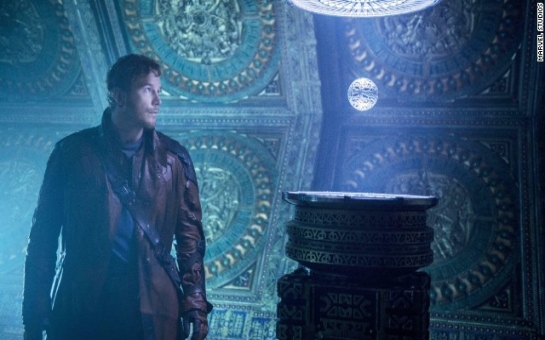Was it the end of the world at the summer box office?
There certainly was plenty of destruction to go around. Not only were several cities destroyed, including San Francisco ("Godzilla") and Chicago ("Transformers: Age of Extinction"), there was also the kind of destruction Hollywood hates: that of their receipts.
The summer box office, as of the last week in August, was down 25% over summer 2013 -- admittedly a banner year. Nonetheless, with the exceptions of "Guardians of the Galaxy" and a handful of others, there was an "eh" feeling to much of what hit the multiplex between May and August of this year. CGI carnage, gross-out comedy, comic-book saviors: Haven't we seen this movie before?
Consider this: 2014 was the first summer since 2001 in which there was no movie that topped $300 million domestically. Studios like to tout $200 million as a blockbuster benchmark, but $300 million is real high-flying territory: "The Avengers," the "Iron Man" films, "The Dark Knight," films with what they call "legs," that create return business and draw in some lukewarm moviegoers. (To be fair, "Guardians" may still get there.)
As Forbes' Scott Mendelson notes, there were various reasons for the down summer, and not all of them were bad: Some planned films were rescheduled, and others were aimed as much at overseas markets as at the United States. (The mediocre "Amazing Spider-Man 2" barely cracked $200 million in the United States but earned another $500 million in international markets.) Still, the results provide a great deal of food for thought.
Here are a few points to ponder:
1. Don't reach for the stars.
Tom Cruise ("Edge of Tomorrow"), Adam Sandler ("Blended") and Melissa McCarthy ("Tammy") couldn't carry their respective movies to blockbuster territory. Only Angelina Jolie ("Maleficent") succeeded, with Scarlett Johansson ("Lucy") getting an honorable mention. However, it might be worth it to keep an eye on Shailene Woodley, the up-and-coming light of "The Fault in Our Stars." Sure, the film was based on a beloved book, but the film's success caught many observers by surprise -- and Woodley was at the center of it all. With her previous turn in the equally successful "Divergent," she's coming on strong.
2. Blow it up good!
As mentioned, destruction was high on Hollywood's list, especially when Michael Bay is involved. The Bay-directed "Transformers" stomped on the planet again, "Teenage Mutant Ninja Turtles" (produced by Bay) did some damage and "Godzilla" visited San Francisco. But more than destruction, apocalypse was in the air: witness "Edge of Tomorrow," "Dawn of the Planet of the Apes" and "The Purge: Anarchy." And we go to the movies to escape from real life?
3. Comedy was not pretty.
Only two movies topped $100 million domestically among comedies this summer: "Neighbors," with the sneaky, shambling Seth Rogen, and "22 Jump Street." The latter was an interesting twist on the sequel, a follow-up that knew it was a follow-up and took every opportunity to make that the source of the comedy. (In going along for the ride, Jonah Hill, Channing Tatum and Ice Cube were excellent self-parodies.) But "Tammy" tanked, "A Million Ways to Die in the West" found one more way to go and "Sex Tape" was erased. You know what they say: Dying is easy, comedy is hard.
4. Look to the East.
Who needs the USA? "Transformers" had a relatively mediocre turnout in America, grossing less than $250 million -- good enough to become the No. 2 film of the summer, but only No. 4 among the four "Transformers" films. On the other hand, overseas the film picked up $821 million -- including more than $300 million in China, becoming that country's highest-grossing film of all time. That was no accident: China is the second biggest film market in the world, and Hollywood is catering to it more and more.
5. Time is your friend.
Perhaps the most talked-about film of the summer -- at least in markets where it has played -- is "Boyhood," Richard Linklater's ode to one child's growing up. Linklater took a risk in deciding to follow his protagonist, played by Ellar Coltrane, and his other actors for 12 years, trusting that a film shot over that time would come together. It worked beautifully, with a 99% critics' approval on RottenTomatoes.com and early Oscar talk. In the past, watching someone age in a film was a sociological curiosity: witness Michael Apted's "Up" films, which have revisited a group of students every seven years. Now that we're in the YouTube age, in which every part of our lives is put on video, it'll be interesting to see if Linklater's concept becomes more normalized.
(CNN)
Bakudaily.Az











